Mental Health Therapy in California
Therapists in California
Filters
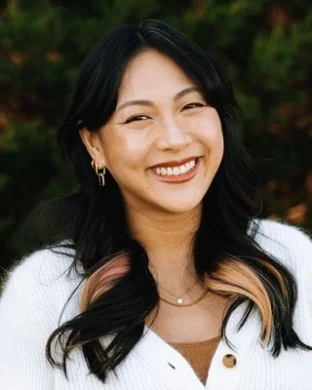
Lan Nguyen
Lan Nguyen is a licensed Clinical Social Worker based in Santa Ana, California, and is passionate about helping her clients feel heard. Ms. Nguyen holds in person sessions and provides virtual sessions across Texas and California to make health care more accessible for all. Whether you’re a first time client or have been in therapy before, she can provide you with the tools you need to heal and grow. Work with Clients Ms. Nguyen works with millennials, AAPI, and BIPOC clients who may feel invisible, stuck in toxic cycles or relationships, and struggling with self doubt. Conversations may revolve around imposter syndrome, social anxiety, and low self confidence. She strives to provide a safe space where clients can heal from past and present challenges. Therapeutic Services Her office collaborates with her clients to help them find healing. She treats individuals struggling with anxiety and depression, attachment and codependency, and grief and loss. Ms. Nguyen also works with clients confronting childhood, intergenerational, and complex trauma. She utilizes evidence-based treatments like eye movement desensitization and reprocessing (EMDR) and trauma focused cognitive behavioral therapy (CBT).
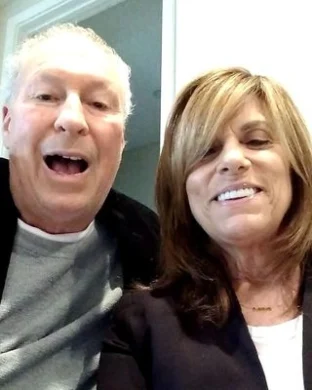
Mitch Blum
Mitch Blum is a mental health professional, providing both online and in-person sessions. Services include therapy for adults (18+). They accept American Express, Discover, and HSA, and may offer sliding scale payment options to help with the cost of treatment. Get in touch to see how therapy can fit your goals and schedule.
Kathryn Green
Kathryn Green is an Associate Marriage And Family Therapist, providing both online and in-person sessions. Services include therapy for children (0 - 10), teen & preteen (11 - 18), adults (18+), and seniors (65+). They accept American Express, Cash, and Check, and may offer sliding scale payment options to help with the cost of treatment. Get in touch to see how therapy can fit your goals and schedule.
Rebecca Kammes
Rebecca Kammes is a Marriage And Family Therapist, providing online sessions. Services include therapy for adults (18+) and seniors (65+). Rebecca is in-network with insurance providers including Aetna, Anthem, and BlueCross BlueShield. They accept American Express, Discover, and HSA. Get in touch to see how therapy can fit your goals and schedule.
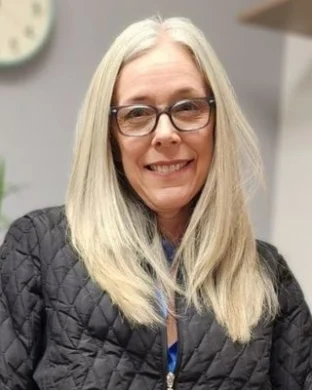
Sharon Meins
Sharon Meins is a mental health professional, providing both online and in-person sessions. Services include therapy for adults (18+) and seniors (65+). They accept American Express, Cash, and Check, and may offer sliding scale payment options to help with the cost of treatment. Get in touch to see how therapy can fit your goals and schedule.
Neil Hopper
Neil Hopper is a mental health professional. Services include therapy for adults (18+). Neil is in-network with insurance providers including Aetna, BlueCross BlueShield, and Carelon Behavioral Health. They accept American Express, Check, and Discover. Get in touch to see how therapy can fit your goals and schedule.
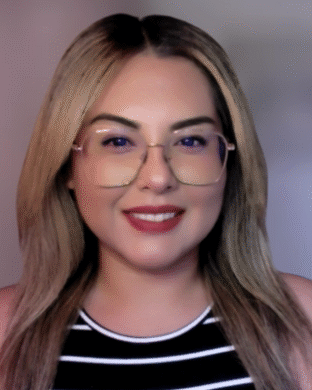
Jhoana Sarabia Maldonado
Jhoana Sarabia Maldonado is a Clinical Social Worker/therapist, providing online sessions. Services include therapy for teen & preteen (11 - 18) and adults (18+). Jhoana has experience working with Bisexual People, Gay People, Lesbians, Nonbinary People, Queer People, Sex Workers, Single Mothers, and Transgender People. Sessions are available in Spanish. Jhoana is in-network with insurance providers including Aetna, Anthem, and BlueCross BlueShield. They accept American Express, Mastercard, and Visa. Get in touch to see how therapy can fit your goals and schedule.

Sylvan Streightiff
Sylvan Streightiff is an Associate Marriage And Family Therapist, providing online sessions. Services include therapy for children (0 - 10), teen & preteen (11 - 18), and adults (18+). Sylvan is in-network with insurance providers including Aetna, Anthem, and BlueCross BlueShield. They accept American Express, Discover, and Mastercard, and may offer sliding scale payment options to help with the cost of treatment. Get in touch to see how therapy can fit your goals and schedule.
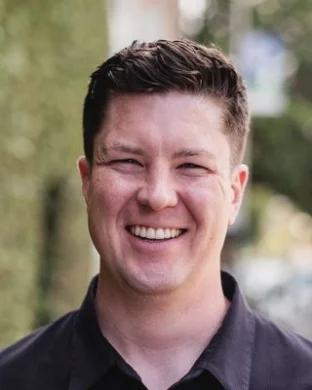
Grayson Wallen
Grayson Wallen is a mental health professional, providing both online and in-person sessions. Services include therapy for teen & preteen (11 - 18) and adults (18+). Grayson has experience working with Queer People. They also have experience working with Christian clients and provide faith-sensitive care while welcoming people of all backgrounds. They accept American Express, Cash, and Check, and may offer sliding scale payment options to help with the cost of treatment. Get in touch to see how therapy can fit your goals and schedule.
Jennifer Fuentes Benitez
Jennifer Fuentes Benitez is a Marriage And Family Therapist, providing online sessions. Services include therapy for children (0 - 10), teen & preteen (11 - 18), adults (18+), and seniors (65+). Jennifer is in-network with insurance providers including Aetna, Behavioral Health Systems, and BlueCross BlueShield. Get in touch to see how therapy can fit your goals and schedule.
Mental Health in California
California is known as the Golden State, but when it comes to mental health, the state doesn’t shine as bright. According to the State of Mental Health in America report, in 2024, nearly 6.6 million adults experienced mental illness, while over 62% of young people with mental health disorders did not see treatment.
While the state ranks above the national average in terms of accessibility and awareness, the major hurdles, especially costs, have prevented Californians from finding mental health providers.
The California Department of Mental Health has responded to the crisis. The agency has partnered with other departments to make infrastructural changes in urban and education development with increased funding for green spaces and school programs in hopes of addressing environmental conditions that contribute to mental health disorders.
Nevertheless, cultural and economic disparities continue to impact minorities, the poor, and the less-educated parts of the population.
Free Mental Health Resources in California
Find A Therapist By City
- Agoura
- Agoura Hills
- Alameda
- Alamo
- Albany
- Alhambra
- Aliso Viejo
- Alpine
- Altadena
- Anaheim
- Angels Camp
- Antioch
- Apple Valley
- Aptos
- Arcadia
- Arcata
- Arleta
- Aromas
- Arroyo Grande
- Atascadero
- Atherton
- Auburn
- Avila Beach
- Azusa
- Bakersfield
- Baldwin Park
- Beaumont
- Bellflower
- Belmont
- Belvedere
- Benicia
- Berkeley
- Beverly Hills
- Bishop
- Bonny Doon
- Bonsall
- Brea
- Brentwood
- Burbank
- Burlingame
- Burson
- Calabasas
- Camarillo
- Cameron Park
- Camp Meeker
- Campbell
- Canyon Country
- Capitola
- Cardiff
- Cardiff By The Sea
- Carlsbad
- Carmel
- Carmel By The Sea
- Carmel Valley
- Carmichael
- Carpinteria
- Carson
- Castaic
- Castro Valley
- Cathedral City
- Cedarpines Park
- Cerritos
- Chatsworth
- Chico
- Chino
- Chino Hills
- Chula Vista
- Citrus Heights
- City of Industry
- Claremont
- Cloverdale
- Clovis
- Coalinga
- Colfax
- Colton
- Commerce
- Concord
- Corona
- Corona Del Mar
- Coronado
- Corte Madera
- Costa Mesa
- Cotati
- Covina
- Crestline
- Culver City
- Cupertino
- East Los Angeles
- East Palo Alto
- El Cajon
- El Cerrito
- El Dorado Hills
- El Monte
- El Segundo
- Elk
- Elk Grove
- Emeryville
- Encinitas
- Encino
- Escondido
- Eureka
- Fair Oaks
- Fairfax
- Fairfield
- Fallbrook
- Felton
- Ferndale
- Folsom
- Fontana
- Foresthill
- Forestville
- Foster City
- Fountain Valley
- Fremont
- Fresno
- Fullerton
- Garden Grove
- Gardena
- Gilroy
- Glassell Park
- Glendale
- Glendora
- Gold River
- Goleta
- Granada Hills
- Granite Bay
- Grass Valley
- Greenbrae
- Gridley
- Grover Beach
- Guerneville
- Hacienda Heights
- Half Moon Bay
- Hamilton City
- Hayward
- Healdsburg
- Hemet
- Hermosa Beach
- Hesperia
- Hidden Valley Lake
- Hollywood
- Huntington Beach
- Huntington Park
- La Canada Flintridge
- La Cañada Flintridge
- La Costa
- La Crescenta
- La Crescenta Montrose
- La Habra
- La Jolla
- La Mesa
- La Mirada
- La Quinta
- La Verne
- Ladera Ranch
- Lafayette
- Laguna Beach
- Laguna Hills
- Laguna Niguel
- Lake Arrowhead
- Lake Balboa
- Lake Elsinore
- Lake Forest
- Lakeside
- Lakewood
- Lancaster
- Larkspur
- Lawndale
- Lincoln
- Livermore
- Lodi
- Lompoc
- Long Beach
- Loomis
- Los Alamitos
- Los Altos
- Los Angeles
- Los Gatos
- Los Olivos
- Los Osos
- Malibu
- Manhattan Beach
- Manteca
- Marina Del Rey
- Martinez
- Mendocino
- Menifee
- Menlo Park
- Merced
- Mill Valley
- Mission Hills
- Mission Viejo
- Modesto
- Monrovia
- Montara
- Montclair
- Monte Rio
- Montebello
- Monterey
- Monterey Park
- Montrose
- Moreno Valley
- Morgan Hill
- Morro Bay
- Mount Shasta
- Mountain View
- Murphys
- Murrieta
- Napa
- Nevada City
- Newark
- Newbury Park
- Newhall
- Newport Beach
- North Hills
- North Hollywood
- Northridge
- Norwalk
- Novato
- Pacific Grove
- Pacific Palisades
- Pacifica
- Palm Desert
- Palm Springs
- Palmdale
- Palo Alto
- Palos Verdes Estates
- Palos Verdes Peninsula
- Paradise
- Pasadena
- Paso Robles
- Penngrove
- Perris
- Petaluma
- Pine Mountain Club
- Pismo Beach
- Pittsburg
- Placentia
- Placerville
- Playa Del Rey
- Playa Vista
- Pleasant Hill
- Pleasanton
- Point Richmond
- Pomona
- Port Hueneme
- Porter Ranch
- Porterville
- Poway
- Ramona
- Rancho Cordova
- Rancho Cucamonga
- Rancho Mirage
- Rancho Palos Verdes
- Rancho Santa Fe
- Rancho Santa Margarita
- Red Bluff
- Redding
- Redlands
- Redondo Beach
- Redwood City
- Redwood Estates
- Reedley
- Reseda
- Rialto
- Richmond
- Riverside
- Rocklin
- Rohnert Park
- Rolling Hills Estates
- Rosemead
- Roseville
- Sacramento
- Salida
- Salinas
- San Andreas
- San Anselmo
- San Bernardino
- San Carlos
- San Clemente
- San Diego
- San Dimas
- San Fernando
- San Francisco
- San Geronimo
- San Jose
- San Juan Bautista
- San Juan Capistrano
- San Leandro
- San Luis Obispo
- San Marcos
- San Marino
- San Mateo
- San Pedro
- San Rafael
- San Ramon
- San Ysidro
- Santa Ana
- Santa Barbara
- Santa Clara
- Santa Clarita
- Santa Cruz
- Santa Fe Springs
- Santa Margarita
- Santa Maria
- Santa Monica
- Santa Paula
- Santa Rosa
- Santee
- Saratoga
- Saugus
- Sausalito
- Scotts Valley
- Seal Beach
- Sebastopol
- Sherman Oaks
- Sierra Madre
- Signal Hill
- Silver Lake
- Simi Valley
- Solana Beach
- Solvang
- Sonoma
- Sonora
- Soquel
- South Gate
- South Lake Tahoe
- South Pasadena
- Spring Valley
- Stanford
- Stockton
- Studio City
- Sunnyvale
- Sutter Creek
- Sylmar
- Tarzana
- Tehachapi
- Temecula
- Templeton
- Thousand Oaks
- Tiburon
- Toluca Lake
- Topanga
- Torrance
- Trabuco Canyon
- Tracy
- Truckee
- Tulare
- Turlock
- Tustin
- Vacaville
- Valencia
- Vallejo
- Valley Village
- Van Nuys
- Venice
- Ventura
- Victorville
- Villa Park
- Visalia
- Vista